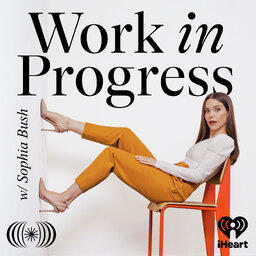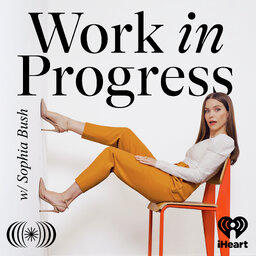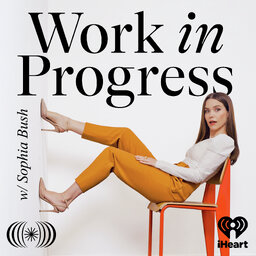Carrie Brownstein is a name you probably recognize most from the Emmy- and Peabody-award winning sketch series Portlandia, but she was also a hard rocking riot grrl as a band member of Sleater-Kinney and is a critically acclaimed memoir writer. Carrie joins Sophia on the podcast to talk about having that "fight" in you to survive, the lens through which she views the world, and the genre-bending film she wrote and stars in, THE NOWHERE INN.
Executive Producers: Sophia Bush & Rabbit Grin Productions
Associate Producers: Samantha Skelton & Mica Sangiacomo
Editor: Josh Windisch
Artwork by the Hoodzpah Sisters
This show is brought to you by Brilliant Anatomy
In 1 playlist(s)
Work in Progress with Sophia Bush
Work in Progress with Sophia Bush features frank, funny, personal, professional, and sometimes even …Social links
Follow podcast
Recent clips

Work in Progress: Mika Brzezinski
1:01:11

Work In Progress: Sophia answers fan questions
23:52

Work in Progress: Rory Uphold
1:07:05
 Work in Progress with Sophia Bush
Work in Progress with Sophia Bush